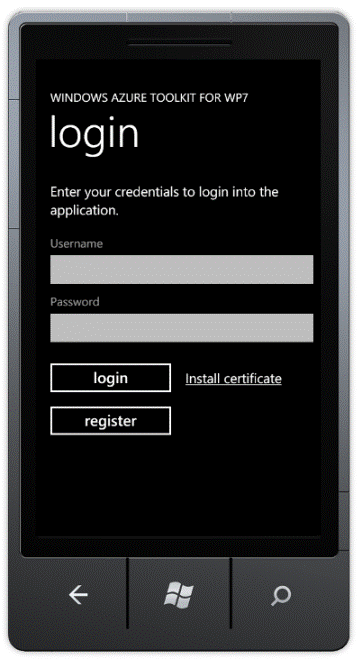Microsoft Announces Windows Azure Toolkits for iOS, Android and Windows Phone
Today, Microsoft announced Windows Azure Toolkits for Devices, consisting of assets for Windows Phone, iOS and a preview of tools for Android.
Using the toolkits, developers can use the cloud to accelerate the creation of applications on the major mobile platforms. Companies, including Groupon, are taking advantage to create a unified approach to cloud-to-mobile user experience.
The average consumer uses many different devices. The PC, the phone and an array of smart Web-connected devices have created diverse computing scenarios for millions of users. For developers, this is an unparalleled opportunity - Forrester predicts that by 2015, the mobile apps services market will exceed $7 billion.
Opportunity also creates complexity for developers; they need to prioritize their investments to quickly reach the biggest and most profitable user bases. Today, it's not just about how quickly a developer can create an experience, but how quickly that developer can build apps that work with unique devices across a dozen platforms.
The toolkits leverage the cloud to simplify the complexity of supporting multiple devices. As a common back-end, developers can use cloud services to share common requirements like device notifications, authentication, storage and even higher-level services like leaderboards. At the same time, developers can maximize the performance of each mobile device by writing client code that exploits each platform. As more and more mobile applications rely on back-end services, the cloud can become increasingly useful and strategic for developers.
Companies like Groupon, as well as independent developers, can rely on the Windows Azure Toolkits for Devices to create applications on the major mobile platforms, specifically:
• Windows Azure Toolkit for iPhone (v1.0). Developers can download the package and quickly get started writing iPhone apps on the Windows Azure platform without having to have intimate knowledge of Microsoft tools, such as Visual Studio. Compiled iPhone code libraries to interact with Windows Azure, a sample iOS application, documentation, and a “Cloud Ready” Windows Azure deployment package are included.
• Windows Azure Toolkit for Windows Phone (v1.2). Originally released last month, new developer features available in the next two weeks include integration with the Windows Azure Access Control Service (e.g., a wizard, automatic setup, tooling and code), full support for Windows Azure Storage Queues and an updated user interface for the supporting Web application.
• Windows Azure Toolkit for Android (Prototype Preview). With the forthcoming release this summer, developers will be able to extend the functionality now available for iOS and Windows Phone to the Android platform with the Windows Azure Toolkit for Android.
As Microsoft built these toolkits, we shared the technology with partners such as Groupon. As one of the hottest startups in tech today, Groupon is tackling many of the challenges noted above – like scalability and UI consistency – as it manages runaway growth most can only envy.
“At Groupon, we recognize that people aren’t tied to their computers and want to get deals - whenever and wherever they happen to be. Taking advantage of the Windows Azure Toolkits for Mobile Devices, we can rely on a common backend to create consistent, next generation mobile experiences like real-time notification services that integrate into each phone’s home screen and app experience,” said Groupon’s Michael Shim, vice president of Mobile Business Developer & Partnerships.
To simplify the process of setting up services in Windows Azure, we are also releasing a “Cloud Ready” package for the toolkit. This package is designed to allow someone to quickly get started using Windows Azure without having to open and modify the services.
Screencasts are available for developers seeking additional information: Getting Started with the iOS Toolkit and Deploying the Cloud Ready Package for Devices. Links to access the free toolkits are below:
iOS:
https://github.com/microsoft-dpe/watoolkitios-lib
https://github.com/microsoft-dpe/watoolkitios-samples
https://github.com/microsoft-dpe/watoolkitios-doc
Windows Phone 7:
https://watoolkitwp7.codeplex.com
Posted by Jamin Spitzer
Senior Director, Platform Strategy, Microsoft






